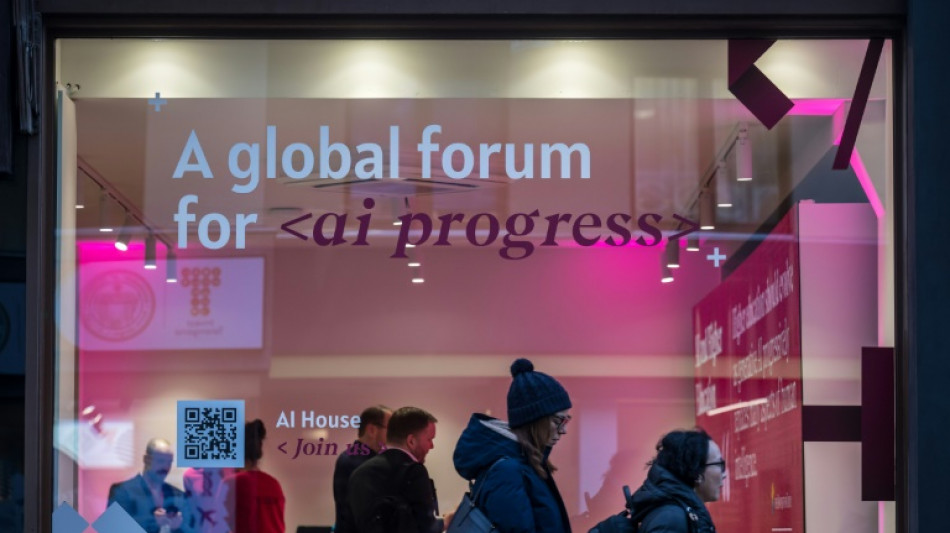
-
 Bangladesh launches campaigns for first post-Hasina elections
Bangladesh launches campaigns for first post-Hasina elections
-
Afghan resistance museum gets revamp under Taliban rule

-
 Multiple people missing in New Zealand landslips
Multiple people missing in New Zealand landslips
-
Sundance Film Festival hits Utah, one last time

-
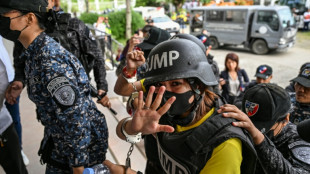 Philippines convicts journalist on terror charge called 'absurd'
Philippines convicts journalist on terror charge called 'absurd'
-
Anisimova grinds down Siniakova in 'crazy' Australian Open clash

-
 Djokovic rolls into Melbourne third round, Keys defence alive
Djokovic rolls into Melbourne third round, Keys defence alive
-
Vine, Narvaez take control after dominant Tour Down Under stage win

-
 Chile police arrest suspect over deadly wildfires
Chile police arrest suspect over deadly wildfires
-
Djokovic eases into Melbourne third round - with help from a tree

-
 Keys draws on champion mindset to make Australian Open third round
Keys draws on champion mindset to make Australian Open third round
-
Knicks halt losing streak with record 120-66 thrashing of Nets

-
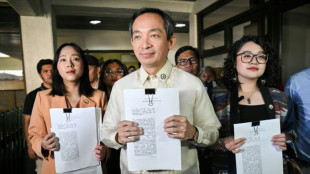 Philippine President Marcos hit with impeachment complaint
Philippine President Marcos hit with impeachment complaint
-
Trump to unveil 'Board of Peace' at Davos after Greenland backtrack
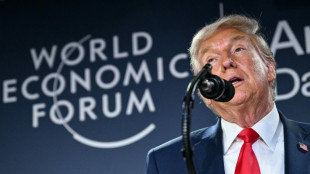
-
 Bitter-sweet as Pegula crushes doubles partner at Australian Open
Bitter-sweet as Pegula crushes doubles partner at Australian Open
-
Hong Kong starts security trial of Tiananmen vigil organisers
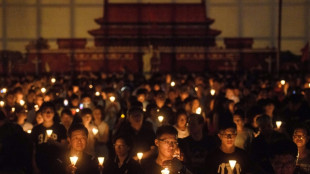
-
 Keys into Melbourne third round with Sinner, Djokovic primed
Keys into Melbourne third round with Sinner, Djokovic primed
-
Bangladesh launches campaigns for first post-Hasina polls

-
 Stocks track Wall St rally as Trump cools tariff threats in Davos
Stocks track Wall St rally as Trump cools tariff threats in Davos
-
South Korea's economy grew just 1% in 2025, lowest in five years

-
 Snowboard champ Hirano suffers fractures ahead of Olympics
Snowboard champ Hirano suffers fractures ahead of Olympics
-
'They poisoned us': grappling with deadly impact of nuclear testing

-
 Keys blows hot and cold before making Australian Open third round
Keys blows hot and cold before making Australian Open third round
-
Philippine journalist found guilty of terror financing
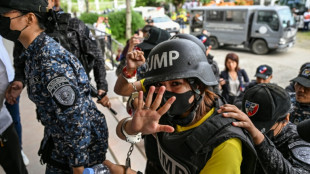
-
 Greenlanders doubtful over Trump resolution
Greenlanders doubtful over Trump resolution
-
Real Madrid top football rich list as Liverpool surge
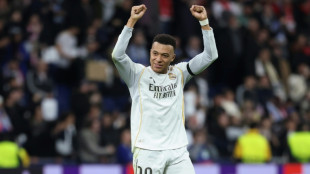
-
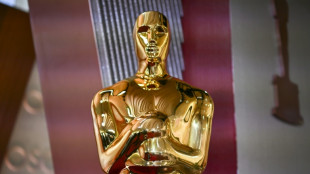 'One Battle After Another,' 'Sinners' tipped to top Oscar noms
'One Battle After Another,' 'Sinners' tipped to top Oscar noms
-
Higher heating costs add to US affordability crunch

-
 Eight stadiums to host 2027 Rugby World Cup matches in Australia
Eight stadiums to host 2027 Rugby World Cup matches in Australia
-
Plastics everywhere, and the myth that made it possible

-
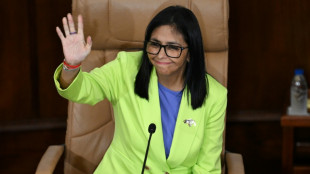 Interim Venezuela leader to visit US
Interim Venezuela leader to visit US
-
Australia holds day of mourning for Bondi Beach shooting victims

-
 Liverpool cruise as Bayern reach Champions League last 16
Liverpool cruise as Bayern reach Champions League last 16
-
Fermin Lopez brace leads Barca to win at Slavia Prague

-
 Newcastle pounce on PSV errors to boost Champions League last-16 bid
Newcastle pounce on PSV errors to boost Champions League last-16 bid
-
Fermin Lopez brace hands Barca win at Slavia Prague

-
 Kane double fires Bayern into Champions League last 16
Kane double fires Bayern into Champions League last 16
-
Newcastle pounce on PSV errors to close in on Champions League last 16

-
 In Davos speech, Trump repeatedly refers to Greenland as 'Iceland'
In Davos speech, Trump repeatedly refers to Greenland as 'Iceland'
-
Liverpool see off Marseille to close on Champions League last 16

-
 Caicedo strikes late as Chelsea end Pafos resistance
Caicedo strikes late as Chelsea end Pafos resistance
-
US Republicans begin push to hold Clintons in contempt over Epstein
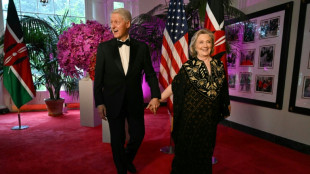
-
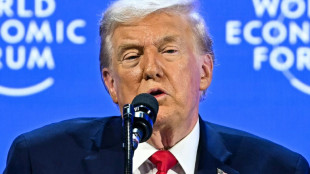 Trump says agreed 'framework' for US deal over Greenland
Trump says agreed 'framework' for US deal over Greenland
-
Algeria's Zidane and Belghali banned over Nigeria AFCON scuffle

-
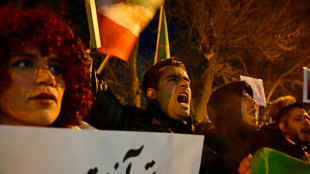 Iran says 3,117 killed during protests, activists fear 'far higher' toll
Iran says 3,117 killed during protests, activists fear 'far higher' toll
-
Atletico frustrated in Champions League draw at Galatasaray

-
 Israel says struck Syria-Lebanon border crossings used by Hezbollah
Israel says struck Syria-Lebanon border crossings used by Hezbollah
-
Snapchat settles to avoid social media addiction trial

-
 'Extreme cold': Winter storm forecast to slam huge expanse of US
'Extreme cold': Winter storm forecast to slam huge expanse of US
-
Jonathan Anderson reimagines aristocrats in second Dior Homme collection
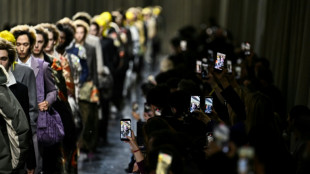

In Davos, AI excitement persists but fears over managing risks
Walking around in Davos where the global elites gathered for the World Economic Forum this week, there were two inescapable words on the windows: artificial intelligence.
If 2023 was the year everyone including investors and politicians were feverishly excited about AI, 2024 looks set to be a more sober year where people try to tackle how the world benefits from AI while mitigating its risks.
AI was the buzzword on everyone's lips at the World Economic Forum, when they weren't talking about a possible return of former US president Donald Trump.
The world's biggest tech companies including Google, Meta and Microsoft were out in force, with their most senior executives in town for panels but also unofficial chats with businesses and politicians from around the world.
The hype over AI reached fever pitch last year after ChatGPT burst onto the scene in late 2022, demonstrating the rapid developments of the technology.
The chatbot could pour out expressive poems and essays in seconds, and even pass medical and legal exams.
ChatGPT also focused minds on AI regulation to protect individuals from its dangers and harness innovation, with politicians in China, the European Union and the United States passing or working on legislation last year.
UN Secretary General Antonio Guterres said on Wednesday climate and AI had been "exhaustively discussed" by governments, media and leaders at Davos.
"And yet, we have not yet an effective global strategy to deal with either," he said.
China's Premier Li Qiang called for global cooperation on the issue while Guterres told reporters that President Xi Jinping told him he wanted the UN to be at the centre of efforts on AI governance.
Guterres last year set up a panel on AI that delivered a draft report in December, with recommendations on five guiding principles for AI including inclusivity.
- Microsoft president 'optimist' -
The cautious tone had already been set before Davos began on Monday after the International Monetary Fund (IMF) published a report with sobering statistics.
The IMF said AI would affect nearly 40 percent of jobs around the world, and some 60 percent in the advanced world -- replacing some jobs while complementing others.
With people attending from all over the world including China, India, Saudi Arabia, South Africa, there was also focus on what AI will mean for the Global South.
The UN's panel of experts includes Marietje Schaake, international policy director at Stanford University Cyber Policy Center.
The UN has a "unique role with its global legitimacy", she said, "to correct the wrong, if you want to think about it that way, of not having included people, their contexts, their lived experiences, their needs from the global south".
Microsoft President Brad Smith told AFP he was already an "optimist" before Davos about the world working together better on AI. "Nothing has changed," he said.
"What Davos enables is lots of conversations with people who are not always in the same room, and you take stock of where things are, you find out where people have values in common, and you find where you have challenges that you need to address," he said Wednesday.
Sapthagiri Chapalapalli, head of Tata Consultancy Services Europe, said the "overwhelming majority" of people he spoke to at Davos "feel that (AI) has immense potential".
He described how he fielded different questions from participants including how to use AI to improve productivity.
Another question that came up, Chapalapalli said, was: "'How do we do AI in a more responsible manner?'"
The EU believes its comprehensive law to regulate AI is one of the answers to managing the technology's risks.
- Disinformation fears -
There is already a big test for regulators and companies as billions worldwide prepare to vote in polls in Europe, India, Mexico and the United States.
At Davos, the dangers posed by AI for those elections were on the agenda.
Senior EU official Vera Jourova said she pressed big tech executives on what they were doing to prepare for the elections.
Jourova also said Brussels' efforts on its "AI Act" were welcomed.
"What I hear very often from American companies is that the European way of regulating things ahead mitigates risks ex ante, that it creates a bigger legal certainty than in the United States," she told journalists.
ChatGPT creator OpenAI's CEO, Sam Altman, acknowledged the concerns over AI's impact on elections this year but insisted his company was "focused" on the issue.
C.Koch--VB



